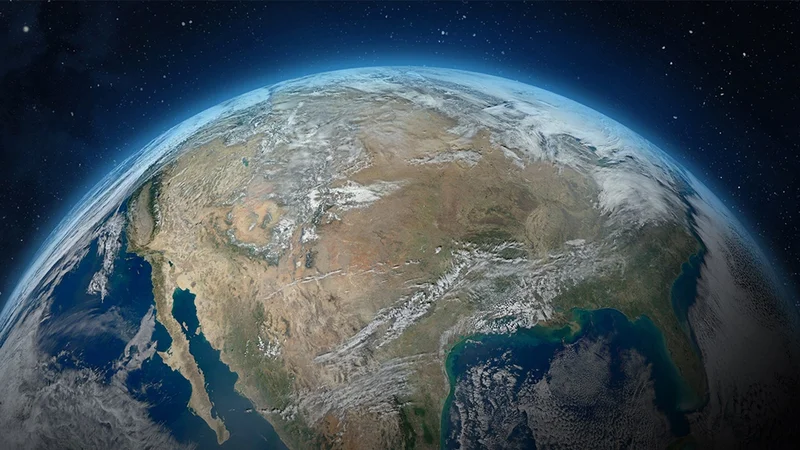BNB Signals | Binance Coin Trading Alerts & Insights
BNB Signals | Binance Coin Trading Alerts & Insights
Alright, folks, let's talk about something truly unsettling, the kind of silent, slow-motion disaster that corporate media glosses over because it ain't got a convenient villain or a quick fix. I'm talking about Earth's damn magnetic field, our invisible shield against cosmic death rays, and guess what? It's got a gaping hole, and it's getting bigger. Much bigger.
You ever heard of the South Atlantic Anomaly? Sounds like a bad sci-fi movie title, right? But it's real, and it's basically a massive weak spot in our planet's protective bubble, hanging out over South America and the Atlantic. Scientists, bless their pointy-headed hearts, have been watching it with these fancy European Space Agency Swarm satellites since 2014. And what's their big takeaway after a decade? It's grown by an area almost half the size of continental Europe. Half of Europe, people! That's not just a crack; that's a damn chasm opening up. The weakest point within it is getting weaker too, like a threadbare patch on an old sweater. They call it nanoteslas, I call it a ticking clock.
But wait, it gets better. This ain't just a localized problem down south. While the SAA is doing its thing, getting wider and weaker, other parts of our planetary force field are doing weird stuff too. You'd think it'd all just be weakening, right? Nope. Up over northern Canada, a strong magnetic region has shrunk significantly. Makes sense, given the overall vibe. But then, over Siberia – Siberia, for crying out loud – another strong region has actually grown. Like the planet's magnetic personality is having an identity crisis.
These changes in the Northern Hemisphere? "Unexpected," the eggheads say. You know what that means in science-speak, right? It means "we have no friggin' clue what's actually going on, but we're gonna keep collecting data and scratching our heads." They're mumbling about patterns at the core-mantle boundary, about molten liquid iron swirling around like a cosmic washing machine. It's supposed to be this grand, self-sustaining dynamo, generating the very field that keeps us from being fried. But what if the dynamo's got a short circuit? What if it's just... wearing out? They say it's more like a "decade to century timescale fluctuation" than a full-on magnetic reversal, but honestly, what's the difference if we're just passively watching our protection degrade? It's like finding a slow leak in your car's tire and saying, "Eh, it'll probably last another few hundred miles..." then getting on the freeway.

So, what's the big deal if our magnetic field decides to go a bit wonky? Well, for starters, all those shiny satellites we depend on for GPS, communication, weather, hell, even my internet connection? They're basically flying through a gauntlet of charged particles in that SAA region. More weak spots mean higher rates of those particles, which means satellite malfunctions, damage, or even total blackouts. Imagine your entire life suddenly going dark because some invisible shield decided to take a permanent coffee break. It's not just about losing Netflix; it's about losing the infrastructure that underpins modern society.
And what about the actual humans up there? Astronauts on the International Space Station, future moonwalkers, Mars-bound adventurers – they're staring down increased radiation exposure. DNA damage, a greater chance of cancer... just another day at the office, right? They talk about "hardening" spacecraft, like that's just a simple fix, a bit of extra armor. But you can't harden a human against everything, can you? It's like putting a tiny Band-Aid on a gushing wound and calling it a mitigation strategy. This isn't just a glitch. No, 'glitch' implies a quick fix—this is a fundamental shift in our planetary defense system, and we're just supposed to recieve the warnings and shrug.
I mean, we've built this entire civilization on the assumption that certain fundamental things, like a functioning magnetic field, are just givens. Now that assumption is wobbling, and the best we've got is scientists telling us it's "complex" and "unpredictable." It's like we're living in a house with a slowly crumbling foundation, and the experts are just measuring the cracks, not actually patching them up. Then again, maybe I'm just yelling at clouds. It ain't like any of us can exactly grab a giant magnet and fix the core, can we? We're just passengers on this rock, and the driver seems to be falling asleep at the wheel.